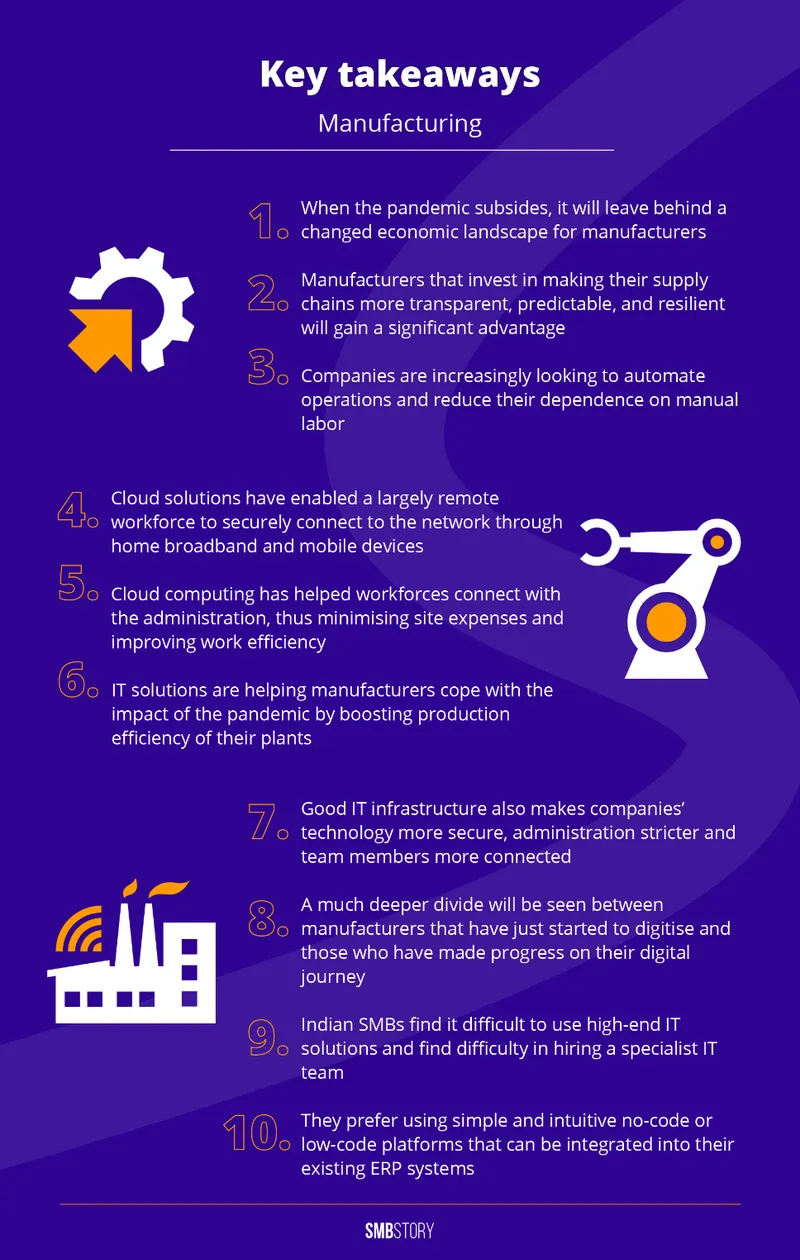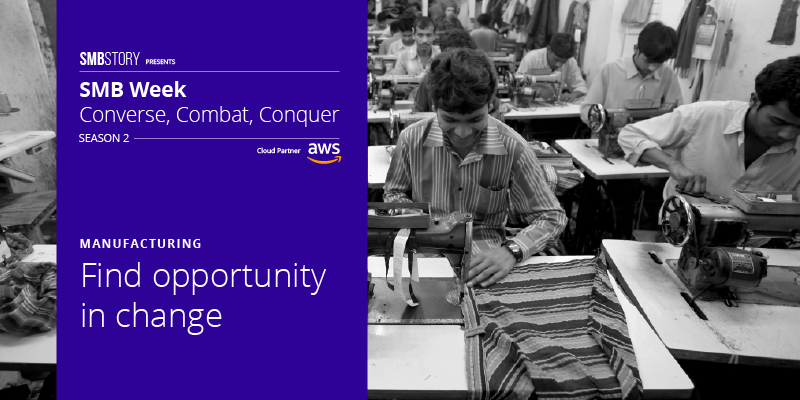SMB Week: Here’s how SMBs in the manufacturing sector can find opportunity in change
SMBStory and cloud partner AISPL hosted a WhatsApp chat session as part of ‘SMB week - Converse, Combat, Conquer’ to discuss the disruptions in the manufacturing sector and how SMBs can leverage cloud technology to stay relevant.
In the wake of the COVID-19 pandemic and lockdown, Indian small and medium businesses (SMBs) in the manufacturing sector are seeing the accelerated adoption of information and communication technologies, with an increased focus on the internet of things (IoT), artificial intelligence (AI), automation, etc.
To dive deep into this topic, SMBStory and cloud partner Internet Services Private Limited (AISPL) hosted a chat session as part of ‘SMB week - Converse, Combat, Conquer’.
In a chat session held on March 18, industry leaders from the manufacturing sector came together to explore how manufacturing SMBs can make the most of the disruption.
The panelists were in agreement that following the disruption of supply chains last year, improving resiliency, manufacturing efficiencies, and the smooth and seamless scaling of capacities have become top priority for manufacturers.
Describing some of the challenges in the sector, Madhur Bansal, CEO and Founder, Aton Solar, said, “The Low availability of workers and transportation vehicles and rising prices of fuel have led to reduced profits, unequal demand across various sectors, and disrupted supply, which has made it difficult to do the business in these times”.
According to him, the Indian manufacturing industry has always been a labour-oriented one with limited mechanisation. He maintained that post-COVID, the manufacturing industry will see vast changes with the introduction of robotics, IOT and machine learning.

Ram S, Founder and Managing Director, Mayoora Foods, said, “Some companies that provided and delivered vital goods like personal care, food, and pharmaceutical products had to struggle in meeting a steep demand driven by panic buying. Others experienced dramatic drops in demand, which put extreme pressure on them to cut operational costs. Every major manufacturer has experienced disruptions.”
As the panelists explained how they coped with supply chain disruptions in their own companies, Satwik Priyadarshi, Founder, FormFab Innovations & Asvin Tech, said, “We used to source finished components and raw materials from our vendors from Japan, the USA, and Spain. Now we are only procuring from Indian vendors based out of Pune and Chennai. We managed to onboard them by adding an in-house post-processing-cum-finishing facility. This has made our supply chain more local and antifragile.”
As the conversation shifted towards the need for digital solutions to address the immediate needs of SMBs, the panelists agreed that cloud-based technology adoption will be the new normal for SMBs in manufacturing.
Nitin Seth, Vice Chairman, G.D. Foods Mfg. (India) Pvt. Ltd, said, “It would be easy to generalise that technology has helped businesses to carry on working. With staff forced to work from home, cloud technology has enabled them to securely connect to the network through their home broadband and with their own device.”
As the session ended, the panelists noted that these IT solutions, hosted on the cloud, need to be intuitive and easy to use.
Apoorva Shah, Co-founder, Hostec Hospitality, said, “At times, non-tech founders and business owners get carried away by the constantly evolving tech developments. Hence it is important to have tech platforms that are simple to operate and ensure smoothness and efficiency in operations.”








![[Startup Bharat] Y Combinator-backed BeWell Digital is enabling the digital transformation of radiologists](https://images.yourstory.com/cs/2/40d66ae0f37111eb854989d40ab39087/ImagesFrames31-1648033042143.png)


![[Funding alert] Flexmoney raises $4.8M in Series A round from Pravega Ventures, others](https://images.yourstory.com/cs/2/b87effd06a6611e9ad333f8a4777438f/Imaged3fu-15985072374461-1623748521168.jpg)
